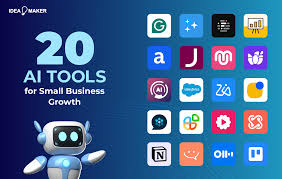Do you struggle to manage your business’s operations? Or, you want to hire more employees, but are unable to do so due to financial restraints? Well, why don’t you try some of these free, helpful business tools and software?
I was in a similar position a year ago. Effectively managing my small digital marketing agency became increasingly difficult. To make things worse, I wasn’t profitable enough to hire new employees. So, in a desperate move, I started looking for cheap alternatives that could potentially help me keep my business afloat.
Fortunately, I came across numerous free tools to share my business’s responsibilities with. And, since these tools only required stable and high-speed connectivity to work and produce effective results, it wasn’t a problem for me since I was already subscribed to my fiber-based Verizon Internet.
Here, I’ll share those tools and explain how you can use them to your advantage. Also, since I’ve used the free version of these tools, I’ll only talk about it in this article. So, let’s start!
MailChimp – Best For Email Marketing
This is the tool that saved me from hiring an email marketing specialist. Email marketing played a major role in potential client hunting. However, as resources were running thin, I couldn’t spare much time for it.
But now, I can quickly create customized email marketing campaigns to target my potential customers. Even though MailChimp’s free version offers limited pre-built email templates, I believe they’re sufficient for a small business like mine.
Other than this, there are 300+ different integrations, a content studio, forms, and landing pages that I use frequently. Also, numerous guides and tutorials are available for free, which I believe help fine-tune email campaigns.
Last but not least, limited reporting and analytics tools, which include basic reports, subject line helper, and personalized product recommendations, are also available in MailChimp’s free version.
Zoho Invoice – Best For Invoicing
Invoicing is a key operation in every business. And, for this purpose, I use Zoho Invoice. It’s a completely free invoicing software that lets you create customized and professional invoices as per your business’s needs.
However, what I like the most about Zoho Invoice is its diverse functionality. From automating late payment reminders to recording and managing expenses, Zoho Invoice can handle everything.
Other than this, it can also be integrated with other Zoho products, like the CRM, analytics, books, and more. And importantly, Zoho Invoice lets you get paid from different debit and credit cards, e-wallets, and ACH (Automated Clearing House).
All in all, I believe Zoho Invoice can effectively eliminate the need to hire an expensive accountant for small businesses.
HubSpot – Best For Marketing
If I were to compare all the free tools I use, I’d say HubSpot offers the most features. I mainly used it for Facebook Messenger integration. As I had multiple clients who reached out to me on Facebook, this feature helped me cater to their queries instantly.
But with time, I understood that HubSpot’s free version offered multiple other features that could optimize my marketing strategies. For instance, I use HubSpot for Ad retargeting and management, form automation, email reply tracking, and much more.
Other than this, HubSpot also offers SEO recommendations and optimization tips and tricks, which are really helpful in improving my clients’ rankings on the SERP (Search Engine Results Page).
Lastly, I also use HubSpot’s website traffic analytics to help understand how my different marketing campaigns perform across the internet.
In short, I believe HubSpot’s free version is a complete package for small businesses like mine that want to improve their marketing strategies and techniques for free.
Asana – Best For Project Management
Before this tool, my team and I used a social communication app to share work-related tasks. But now, we use Asana to communicate, take follow-ups, set deadlines, and manage numerous tasks.
Asana offers a free version for individuals and small teams and is loaded with useful features. It also offers a Kanban board, calendar, and list view to understand your team’s workload. Furthermore, you can also set task priority and segregate them based on their respective projects.
Additionally, Asana offers more than 100 integrations with famous tools like Microsoft Teams, Gmail, Google Calendar, Google Drive, Canva, etc. This way, data is automatically synced across different platforms and helps small teams like us to stay up to date.
To wind up, these are a few free tools that help in efficiently running my business. From generating invoices to designing marketing campaigns, managing tasks, and whatnot, these tools are invaluable to me.
Also, if some of these tools don’t align with your business goals and needs, keep in mind that there are a lot of other tools that offer free services. And, I believe most free tools offer ample features to cater to the needs of small businesses.

